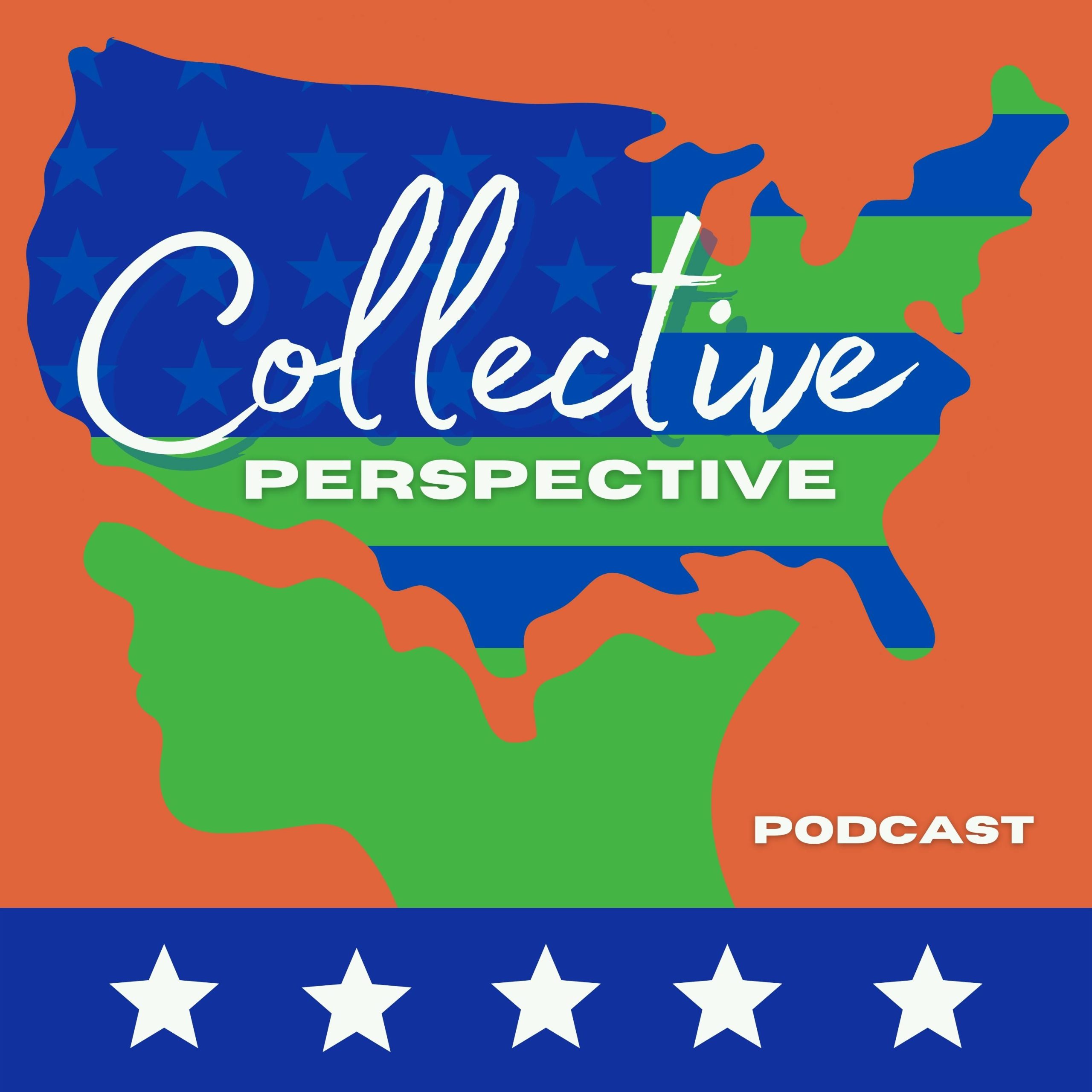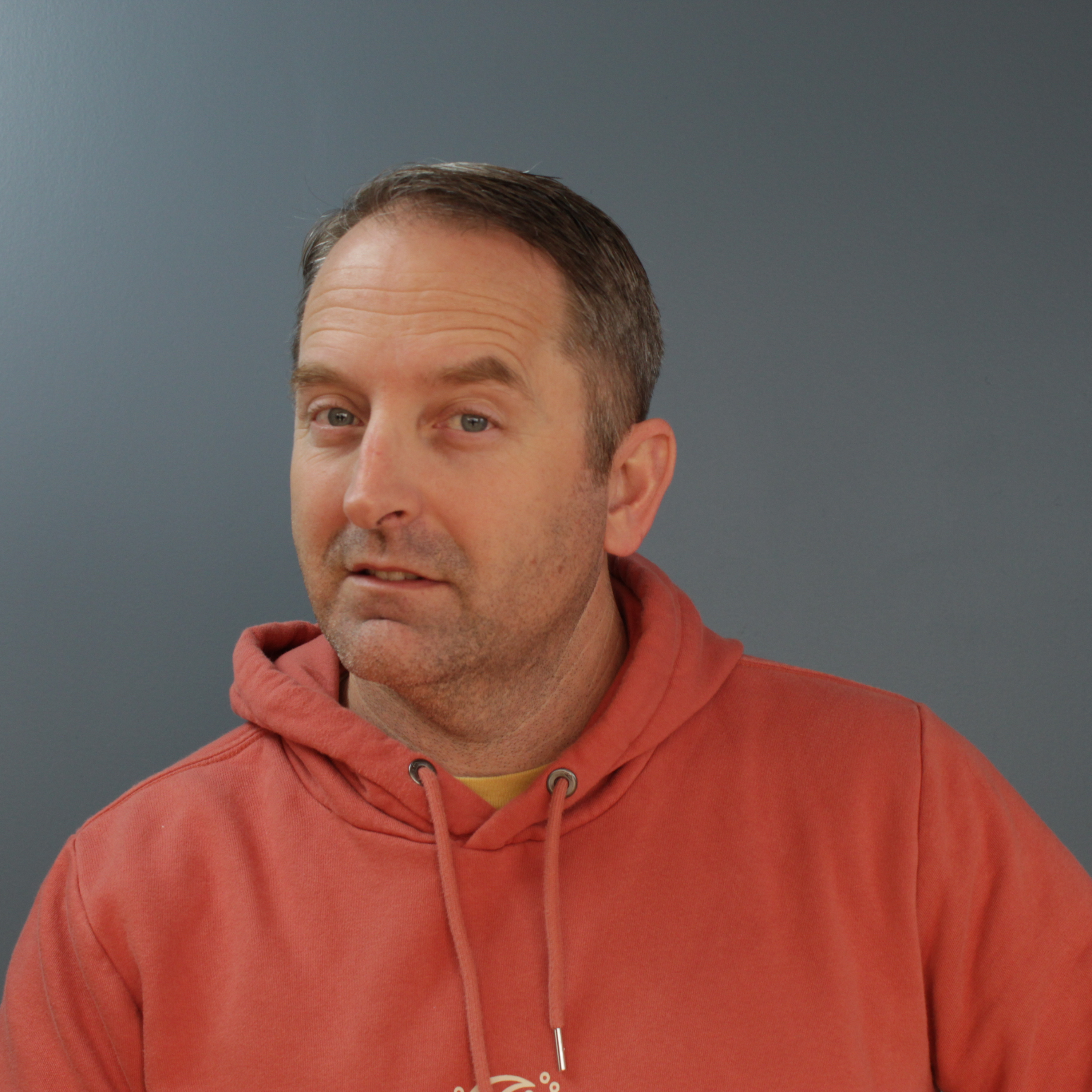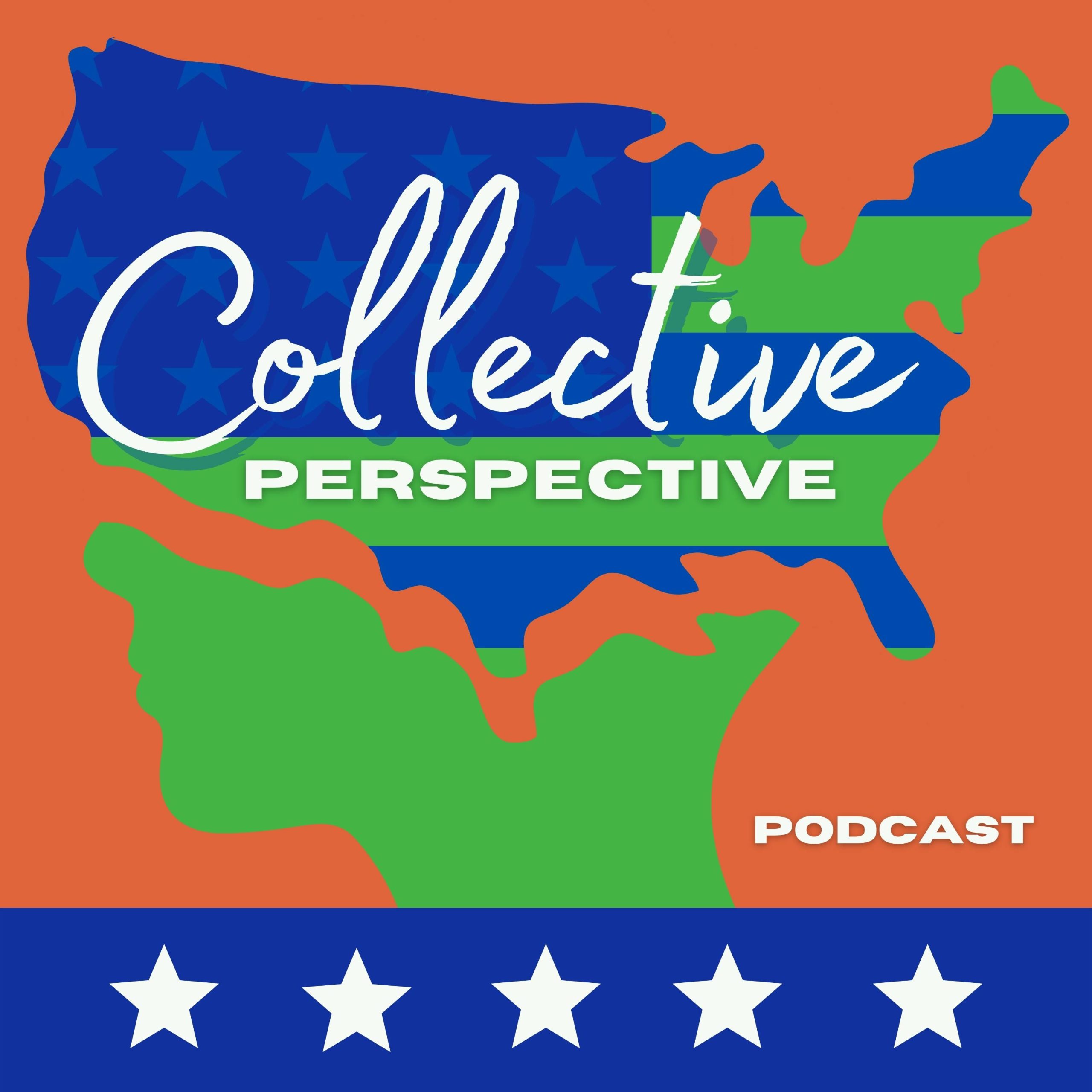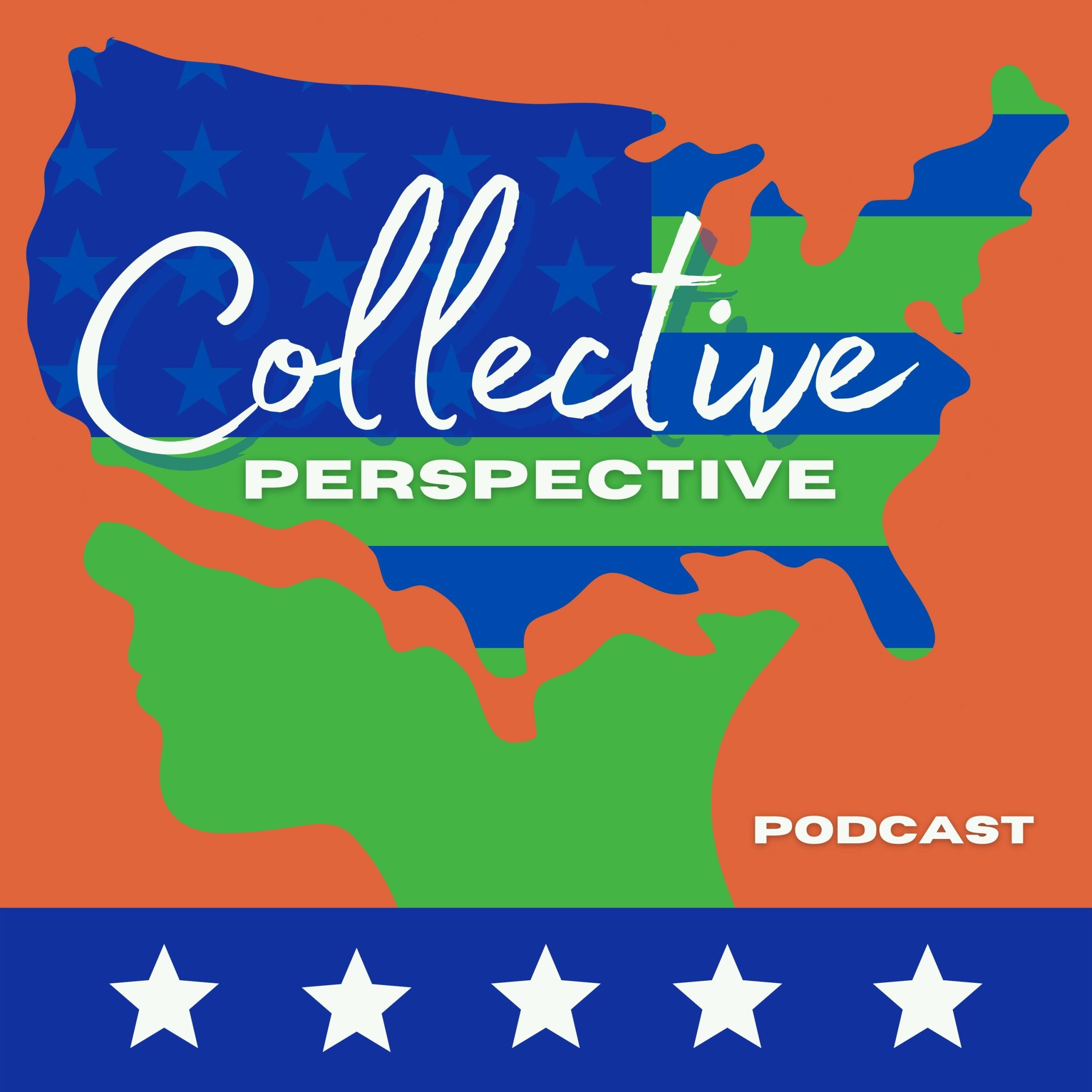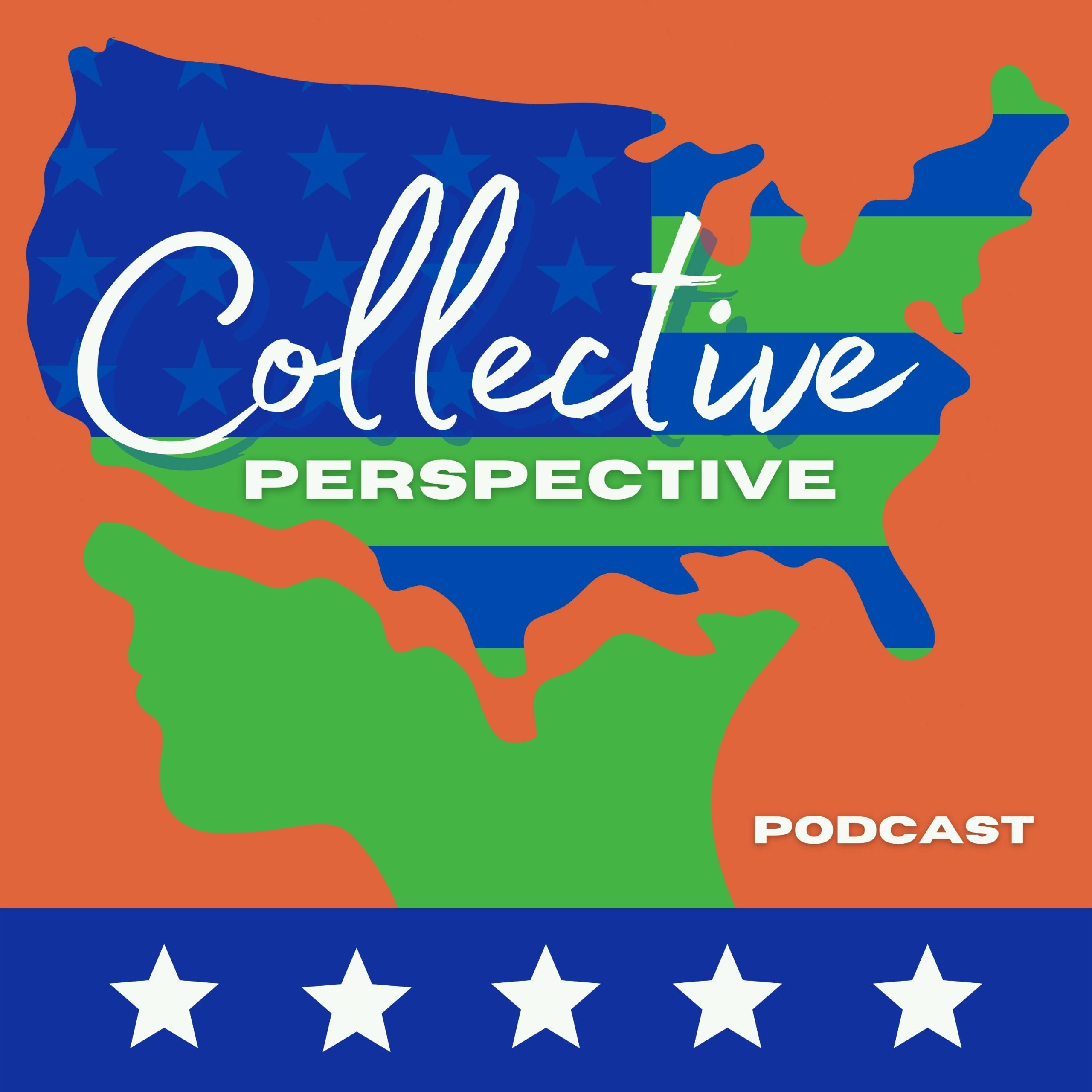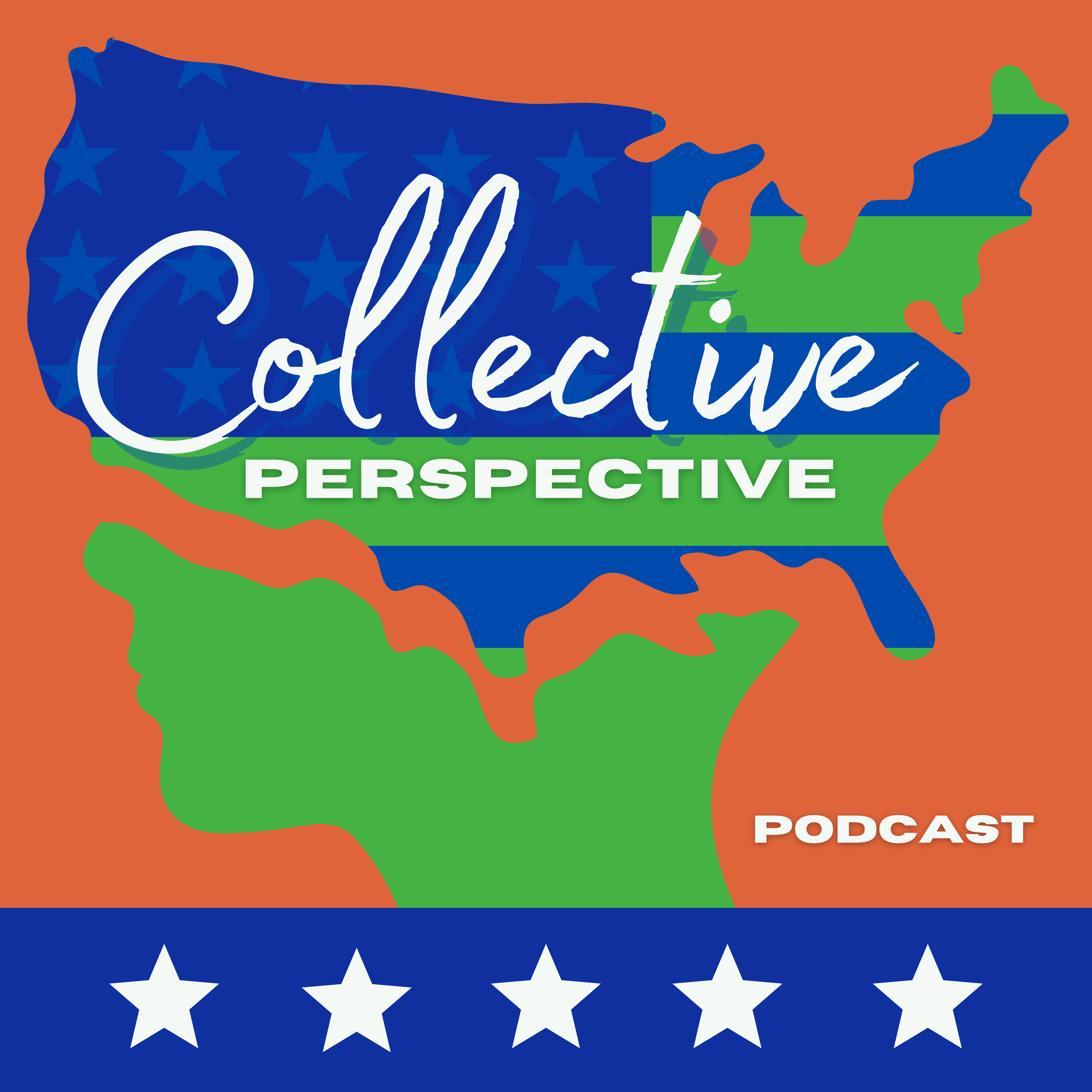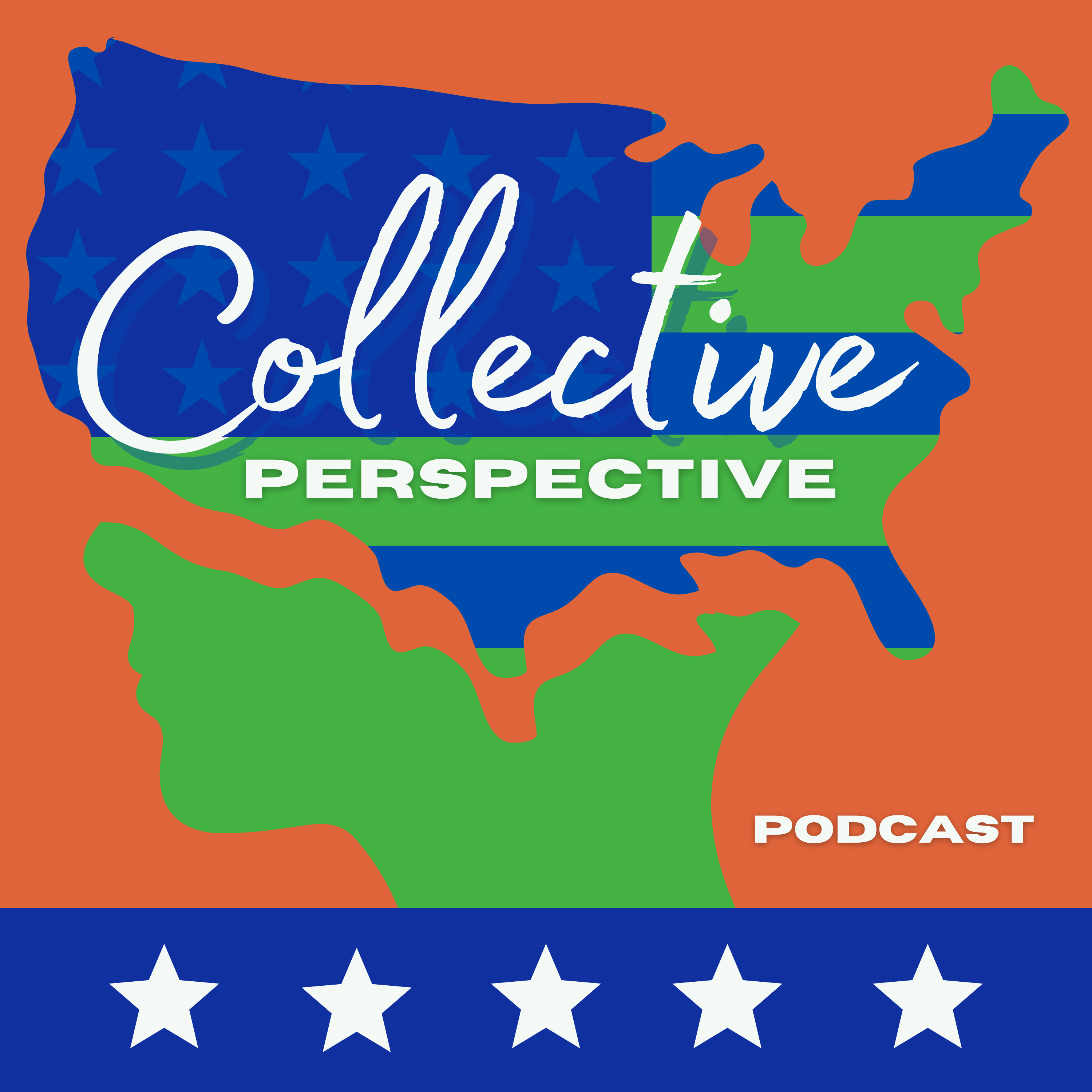An identity crisis happens at a time when some change makes you reevaluate who you are. The United States is at this pivotal point in its nearly 250 years of existence. Are we the people of a constitutional republic or a democracy? Do you even know the difference? We, as Americans, are walking contradictions as we benefit from imperialism but pretend to care what we are as a country. We all play into Corporatocracy and fail to realize society is being controlled by corporations or corporate interests. Thank you to our special guest, President Ronald Reagan, as we recognize how his speech is even more relevant 43 years later. This episode features a clip of the First Inaugural Presidential Address made by President Reagan at the U.S. Capitol Building on January 20, 1981.
View Full Transcript
Episode Transcript
The economic ills we suffered have come upon us over several decades. They will not go away in days, weeks, or months, but they will go away. They will go away because we, as Americans, have the capacity now, as we've had in the past, to do whatever needs to be done to preserve this last and greatest bastion of freedom.
In this present crisis, government is not the solution to our problem. Government is the problem.
From time to time, we've been tempted to believe that society has become too complex to be managed by self rule. That government by an elite group is superior to government for, by, and of the people. Well, if no one among us is capable of governing himself, then who among us has the capacity to govern someone else.
All of us together in and out of government must bear the burden. The solutions we seek must be equitable with no one group singled out to pay a higher price. We hear much of Special interest groups. Well, our concern must be for a special interest group that has been too long neglected. It knows no sectional boundaries or ethnic and racial divisions, and it crosses political party lines.
It is made up of men and women who raise our food, patrol our streets, man our mines and factories, teach our children, keep our homes and heal us when we're sick. Professionals, industrialists, shopkeepers, clerks, cabbies, and truck drivers. They are, in short, we the people. This breed called Americans. With the idealism and fair play, which are the core of our system, and our strength, we can have a strong and prosperous America.
At peace with itself and the world. So as we begin, let us take inventory. We are a nation that has a government, not the other way around. And this makes us special among the nations of the earth. Our government has no power except that granted it by the people. It is time to check and reverse the growth of government.
Which shows signs of having grown beyond the consent of the governed. I don't know. I think he's a puppet of somebody. Is that our brother in the Lord, Reverend Ronald Regendock? Is it? I'm just saying that he's a Jack Walsh crony that Jeff doesn't like, so I'm surprised he's playing it. And he's speaking against the government.
Oh my god. That's because I'm unbiased, Travis. Unlike other people you show your bias, but then you're like, yeah, wait a second. I need to walk that back a little bit Did you notice how before all of that when he was saying America is the greatest the applause and the audience was a little more Enthusiastic and loud when he said government is the problem.
It was kind of like a slow clap at first like
If you say so. You could tell he was ruffling feathers on that. The Collective Perspective is set out on a mission to understand some of the most impactful and controversial trends and topics in our lives today. Hi, I'm Jeff. Hi, I'm Travis. Hi, I'm Juwan. Can we find common ground in the middle, in a peaceful manner, but with real community benefit?
We believe as veterans and concerned citizens, we are striving to bring together diverse views. With fact based research to navigate this tough terrain in a search of a viable path forward. How do we unify as Americans and prove we aren't all that much different? So meet us in the middle, not the left or the right.
In Season 2, we have decided to focus on researching and exposing fake news and fake information. We're tired of the media lying to us. We're tired of the fake news. We're tired of the government lying to us. We want to know the truth. And our mission is to seek the truth. Everybody, this is the Collective Perspective podcast.
And we're here in sunny Jacksonville, Florida. Talking to you from VACOM recording studio.
Hey everybody, welcome back to the Collective Perspective. This is Jeff. And this is Travis. I'm Jawad. This episode is about what I feel is a, what we're in the middle of in our lifetime is an American identity crisis. Are we confused as Americans? I think as a whole society, I think we've never been more confused.
In our lives in our history than we are now. Let's give a shout out to Edward Bernays. Let's talk about the different types of governments throughout history, throughout the world, and maybe if we had some examples of those. So we can kind of pinpoint, we all know what type of government we are, but I can tell you that if you said one of them, you're not 100 percent correct, because as we'll explain here, we are a Cesspool.
I don't know. A swamp. No, that's not, those are all bad words. Yeah, we're a swamp of just different ideologies and political facets. Oh, come on. We're like that restaurant. The Melting Pot. Claim jumper. Yeah, why do you say swamp though? Swamp. Because it's relative. Swamp. What about collage? He said swamp. You know, a melting pot, a collage, I think those Because a collage is kind of like, oh, that's artistic.
A swamp is Everyone has their kind of take on things. A swamp is where the low life people that live, even though you may have money. You know, some people are so poor. Cause all they have is money. You know who said that? Wasn't Edward Bernays. No, Bob Marley said that. There's different types of, uh, governments throughout the world.
Oligarchy, a conceptual form of power structure in which power rests with a small number of people. These people may or may not be distinguished by one or several characteristics such as nobility, fame, wealth, education, corporate, religious, political, or military control. You guys got any examples of that?
Government oligarchy would be probably something that would, you would see in like the Eastern block of Europe, like Russia, Ukraine, Yugoslavia, back in the day, they were run by basically the rich business people who had fake Titles or bestowed upon titles or something. I think that's probably the closest that we can look back on and see what would be most representative of an oligarchy.
Well, nobility though is, they have nobility in England. But that would be more of a monarchy or something else. Yes, that's true. There's also a constitutional monarchy too. There are other very controlling. I think there's, I think we can break this down to maybe two different types. I don't know. There's just so many different types of governments.
I was just thinking that there is a somebody that is a dictator, for example, or an authoritarian. Those are communist or anarchist, I guess anarchist is not really telling anybody to do anything, it's just everybody to themselves. But a dictatorship or an authoritarian are kind of, you kind of envision this like bully, superpower, you know, like Like Korea, North Korea to be more specific.
North Korea would be a great example of a dictatorship. You mentioned in the oligarchy like corporate, religious, political, or certain controls. You look at Iran and you have a theocracy where the imam is kind of like the head figure and nobody says anything about him. So there's religious control of the people or of the government.
Iran, Qatar, a lot of the Middle East countries I think are run that way. Afghanistan, Pakistan. Pakistan is a, is a military type of dictatorship over there. The military runs Pakistan, which is kind of scary because they have nuclear power. They have nuclear bombs. I think that oligarchy, it can be applied in pretty much any of the governments that exist today in some perspective.
They all have some silver lining of some elements of that modern governments that we recognize today. When you're talking about a government, it's not just one of the, I think it's, it's probably a combination of, maybe something's more of, definitely, uh, signs of different variation. Which is the reason why the, the phrase 1 percent is popular in politics and they revisit that quite often when they talk about politics and you know, who they are more conscious of and who has more influence.
I think influence is the right word. I wouldn't say power, because that shifts based on who has the influence. And we clearly understand that the 1%. Have a lot of influence. When they swing a blow, it's felt. By 1 percent wouldn't you think, because corporatism or Corporatocracy is are both different forms.
So what is corporatism? It's a collectivist political ideology which Advocates the organization of society by corporate groups such as agriculture labor military business scientific and guild associations On the basis of their own common interest, the term is derived from a Latin term of body or body.
Now, what was your question about corporatism? About today? It had to relate to today, didn't it? Because I don't see that here now. Personally, I don't see it, but that doesn't mean it's not there. Unless you're thinking maybe the, over the last two or three years, we had a political ideology driven by scientific backings, if you will.
Trust the science. But there is also corporatocracy where it's a rule by corporations. I think that gets into like a crony capitalism and that's probably more accurate as to how we are now. The corporations write the bills that they send to Congress. Congress isn't writing these bills. A corporate sees a need for something or sees a way to make their foothold stronger and they write a bill, make it look like it's for the people, when it's really benefiting them more by knocking out competition.
Definitely a hidden agenda, most of the time. But it gives the presentation or the perception it's for the people. I think that's where we the people have abdicated our power and we haven't, we don't hold those that vote for these bills more accountable and we don't take a personal interest in reviewing the bills that come before Congress.
They're supposed to be presented and available to read by anyone for a set amount of time before they're voted on. And many times if you follow the money, Say, all right, what does this bill do? Who benefits from this bill? Who is it going? What sanctions does it oppose on anyone else? Those are the questions we should be asking when we look, when bills are presented and then make a better decision and contact our representative and say, yay or nay, hey, this is a good bill.
No, don't vote for this. You're saying we need to hold those people accountable. I agree, we need to hold those people accountable. What power do we have as an individual to be able to do so? It's at the local level is where we have our power. It kind of just seems out of reach for us to hold people in Washington accountable.
I don't think they should be in Washington if they represent our state where we live. Well, I'm sure they're not in Washington all the time they travel to Washington to meet other people. They have a residence in Washington for a reason. They probably spend at least eight to nine months of the year there and only come back to their home.
Area just to campaign and raise money. Well, they're making so much money. They can afford two houses. Or how are they making that money? Corporations, corporations that rule corporateocracy. Another form of government is socialism common. Uh, what is that? A Phyllis, uh, a philosophical political socialism is a political philosophy.
Is that a philosophical popsicle? You can't even say it now. Philosophical popsicle. Say that. Philosophical popsicle. Philosophical popsicle. Socialism is a political philosophy and movement encompassing a range of economic and social systems characterized by social ownership of the means of production as opposed to private ownership.
A lot of people associate socialism with like something that's really bad. Where it doesn't seem to be as bad as some of the others in the top of the list. Socialism and Marxism are wonderful on paper. I mean, it's obvious that we are part socialist. We're not paying for the police department. We're not paying for the Well, you could be paying for the fire department.
No, we do. What I'm saying is as an individual You're not charged a fee unless you're taking an ambulance ride or something like it comes out of local taxes What if somebody's not even paying taxes at all? So we are charged a fee then they're getting it for free aren't they who would not be paying taxes your boy Donald doesn't pay The 1 percent perhaps now are they see this is where we get into it Are they not paying taxes or are they using the laws to to their benefit when they make so much money and invest it somewhere?
They get breaks and benefits. And that's where we go back to corporateocracy is the, these people or the 1 percent or the elitists, you know, they, they go the extra mile to put the lobbyist on Capitol Hill to campaign their agenda because they know. The rules to the game. And that is the issue with we, the people is that we're not educated enough to know how to play the same game.
So when we operate on the same table, we get annihilated because we don't know. Are you tired of not knowing whether the news media is telling us the truth or not, or maybe you already know they have been deceiving us for our whole lives. And our parents. And their parents' lives. Do you believe in diversity of thought?
Are you stuck in the middle of the left and the right? Do you believe in healthy debates? Does context matter to you? If so, this podcast is for you, the Collective Perspective Podcast. Please like and follow our insightful podcasts on all major platforms. Don't just sit there and listen to them. Spread the word.
I think we were trying to find an example of how as Americans socialists, but you know, there's also, I think it even starts out with the word. Social Security. That's a socialist type of thing, I would think, which I think by the time we retire, it'll be gone. Or is it already gone? There's also the Federal Republic of States, a Republican form of government, and its core, it's literally meaning the word Republic, which used to reference the form of government, means a country that is governed by elected representatives And an elected leader, such a president rather than a monarch, would you say alien?
Well, a monarch would be like a birthright leader where, uh, an elected president is someone that gets the vote, someone who is popular and gets the vote. It made me think of, you know, when we were talking about propaganda and we were like, Oh, the Inquirer doesn't exist anymore, I saw one at the store. Yeah.
Yeah. What did it say? The king has ousted. Prince Andrew. I believe it. It happened. What happened? He kicked him out of, he, he's basically taking away his title and everything because of his affiliation and his, I think he was actually found guilty of what he had done with underage people on Epstein Island.
Good Lord. The king is like, you're done. Womp womp. He had done on paper, done in public, but he can't take away his birthrights. They didn't cut off his winker. And he's, and he's not going to jail. Yeah, that part. I think they should be cutting off wankers, man. That is extreme. That's one thing. Well, uh, Like, you can stay out of jail, you can do all that stuff, but you no longer have a wanker.
Did you see what I sent you about those seven people in Texas? So you, you, you believed it. No. I mean, actually, there's some states that push that, that castrating men. That is extreme, brother. Be like, sir, you're going to become a very high pitched singer here in a minute. Wow. Castration. Extreme. No, I think they should be hung, castrated, and then hung in public.
Innocent babies, bro. They can't protect themselves. Extreme. That is extreme. When it comes down to governments, who rules? In the sense that nobody rules, it's the anarchy. When there's one person that rules, it's a monarchy or a dictatorship. When there are a few people ruling, there's an oligarchy. And when all people rule, democracy, a direct democracy, and a representative democracy.
I just thought it was interesting to show that One ruler versus multiple rulers even though it doesn't mention all of them because there's so many different forms of government to try to hammer down You have your basic templates of governments like we've mentioned already the autocracy the oligarchy the monarchy democracy theocracy and then the constitutional republic There's only one of those that I'm aware of a constitutional republic means.
That is one of which, rather than directly governing the people, select some of their members to temporarily serve. In political office the constitutional part means that both citizens and their governing officials are bound to follow the rules established in that constitution and We are very fortunate in how our constitution is written.
It limits the power of the government anything not expressly denoted that the government has a has Priority on is reserved for the people. That's the one of the biggest defining factors in my opinion of why our Constitutional Republic makes us the people the freest in in the world. Are we though? Are we just that we're not just a constitutional republic as I want to kind of give you a description as why I think that.
Is it a constitutional republic or is it a democracy? I believe that it is still a constitutional republic and it has been muddied with the word democracy probably for the last almost hundred years, I'd say. We're coming up on two hundred and almost two hundred and fifty years of this country. Some might argue though that the United States is a representative democracy, which means that our government is elected by citizens.
Here the citizens vote for the government officials, these officials represent the citizens, idea, the concern, and government. That sure sounds like what we do. But we also petition our representatives, either for or against bills that are in Congress, and that's where I think that we, the people, have dropped the ball.
To make it more of a representative republic, not a democracy. To be. A constitutional republic, because it's described as the power is not found in mere majorities, but in carefully balanced power. Under our constitution, passed in a bill in the House of Representatives, the body most reflective of current majority views isn't enough to become a law.
Correct. And that's, that's not a democracy, that's a representative. Well, I think imperialism and colonialism, when we get into those, that's more of expanding an empire. And again, this gets back to my view on laissez faire capitalism. It's the most democratic way to get things done if you wanted to. And by that I mean People vote with their wallet.
If a product or service is not good, then it goes away. So that is voted out, if you will. If someone likes that service or product, then it continues on. And it's not, that, that has to do more with, even if it's harmful for you and causes all these problems. Maybe birth defects and stuff down the road, so you're saying that that's okay.
No, I'm not saying that's okay. I'm saying I'm saying that people will vote with their money and shut it down. People keep on buying fentanyl. So what are they voting for? A good time. Goes back to the last episodes where we're talking about consumerism, now aren't we? Wow. Sounds like everything's interconnected.
Sounds like we have an identity crisis. I can, I can agree with that. I, I think that America does have an identity crisis. Here you go. Here's an old school saying, collectives. You're right. It is about that. It's about identity crisis. It's about confusion. It's about selfishness. What we're really unpacking is the human selfish nature.
What has caused us to be in this identity crisis as a nation? We compartmentalize our lives, um, culturally. We, we say, okay, this is, this is more. Where you invest in your money. Yeah. Well, yeah, this is more important to me. This narrative here is it, it means more to me than you. I support the war. I support these companies that are making weapons.
Exactly. Financially. And you've got people that are really, like you said, empathetic. They are selfless. They see the skid row in LA. They see the homelessness. They see the disenfranchised. And we, we see these videos of children. Being sodomized and you got beautiful people like Jeff and you making a podcast That speak truth to power.
Well, you're making it too. Well, God is good But at the end of the day that is really the silver lining in in the identity crisis in America that we can highlight it and highlight the good and bring people back to Their roots, I'm hoping. Exactly. Exactly. And that, that's all about humanism. I mean, at the end of the day, we're all breathing the same air and we all have the ability to love each other through it all.
And that is where government needs to get back to is the purity of the human love for each other. Mankind loving each other. Making sure that, and I'm speaking from a biblical perspective, God said if you feed the homeless, if you cover the children, the fatherless child, or the widow, then you're caring for me.
That is really at the end of the day. What I think, if anything, government is going to apply themselves to is that. And everything else is just compartmentalized to special interests, personal views, and people looking out for what they care about. And it all boils down to selfishness. You know, I just realized too, thinking about imperialism and how the historical thing.
Throughout time, civilization has done that. And there's definitely a difference between colonialism and imperialism. But I think And so what my thought was is that imperialism drives the military industrial complex. It is the only thing that we have to make weapons to be able to make money to be able to Who is paying for all of that?
Well, for example, if we go into Iraq and they're trying to put Taco Bells in Iraq, the corporations are paying for that. Are they not? Is that, are they not somewhat backing war because they want to take over other countries, get them to formulate to our form of government, and so they can put corporate America there.
Because that's what imperialism is too, isn't it? To open up the possibility to have access to these areas they would have never had. And capitalism cannot grow unless it gets new markets. I don't know, you know, I work for a sales company. It's higher every year. Then part of me thinks like, well, the prices go up.
So of course you'll make more money, right? Those numbers will go up, but that's, that's not the case either. What I'm trying to put together is that to me, it's kind of a hamster wheel. We, the people get paid by the people that we have to buy things from. And those people pay our government to get their way and to have their influence and to get our government officials to do what they want, which is to go to war, to.
Imperialize and put more, open more markets for the capitalist corporations to be able to make more money in different markets. Am I too far fetched? I think when it comes to some of that though, if you look back at And then we buy their product. Right. I don't know that those corporations Are the ones that are pushing war like your your food services and medical stuff I think it is.
No, we're talking about the 1 percent those four bigger ones. Okay, the big guys Yeah, um, do they but they're still corporate America, right? Okay. They're still capitalists who or are they? Authoritarians probably a little bit of both and narcissistic as well
What was that I didn't hear you in the back Well, my take on it is this, Americans, I think we are walking contradictions in some perspective because we can put a key in our car and start our car and drive our car pleasantly wherever we want to go. But we clearly know that in some perspective, that fuel, that petroleum came from somewhere.
We benefit from imperialism, but don't want to admit that it's not as good as it should be or it doesn't reflect a really. Pleasant perception from the outside world. And I think we're walking contradictions. I think at the end of the day, you talk about the tattered, like poor person. And then, but then we benefit from our corporate infrastructures that go and corporatize these natural resources that we benefit from every day.
And I, I think that, um, Cause we make a living, they pay our paychecks. Yeah, but we benefit from this every single day. Our livelihoods are much more pleasant and more fruitful because of the infrastructure of America. The corporate, the imperialist, the government that's in place, it benefits us. But then we wake up in our beautiful American life and start pointing fingers at everybody that, that has to behind the scenes.
Provide these opportunities for us to have. I wake up in a Costco bed. I think you're right to a degree, yeah. I think that's why, not too long ago, the phrase was coined, First World Problems. Like, oh, my internet's out for an hour, you know, first world problems. But they don't realize what went into making that internet work in the beginning.
Yeah, when it comes to energy though, I think we could be self sufficient. Exactly. And have energy jobs here in America, whether it's nuclear. I mean nuclear is clean energy that's gonna last pretty much forever. Or batteries. And it is actually safer and more healthy than better. Should I dare I say healthier for the workers than coal?
Has it been predicted on the Simpsons though? Probably because it's some fast programming. Yeah. Uh, you know, we, we rely on these other places. We go to those places, mine them. Uh, you think about the electric vehicles, EVs. They need a lot of cobalt and rare earth minerals. Where are they at? We have big deposits here in America, but we're not mining them because it's dirty.
That is a nasty thing to do and it scars and damages Mother Earth. And those batteries are toxic. And we don't own those mines. Do you know who owns the mines? I believe the Chinese have more mines owned of cobalt mines than anybody. Yes, I think you're correct on that. I read something like four out of five a little while ago.
Look at that. Look at what we're saying. I enjoy my hamburger. But I don't want to see the process of how it's made. Oh, why don't you just go get a steak from the store like everyone else? You don't have to kill the animal for it. Have you ever seen a cow slaughtered? What? Yeah. It is horrific, man. And chickens.
It is horrific. It is unbelievable. My wife is from another, her family is, is from a, an Asian culture and they keep ducks and we like to eat ducks. Her mom had a pet chicken. How to pet bear. She did. In the great words of Jack Nicholson, you can't handle the truth. There's so many layers to that, to the concept of truth.
And when you get to the real, like the real purity of truth, it is ugly. It is ugly. I think as Americans, we're probably more confused than anything now because there's so much information coming at us out of so many different directions. Whether it be intentional algorithms or unintentional. Yep, and just to correct, we're being exposed to a lot of misinformation.
Well, I think we're being exposed to misinformation that we're aware of now. Exactly. Before we didn't take it. I would say before this podcast, I really didn't even think about it. All that much. I, I agree. I agree. The Bible says there's many roads to destruction, but one road to righteousness. And I, I think that you know the roads to destruction, but when you find that one truth, it eliminates all of the confusion.
And that's what we're doing here at The Collective Perspective, is that we're giving people a platform to eliminate the misinformation and we're educating them on how to make. The right decision to, to navigate them to the truth, the real truth. I think it's awesome. And to follow up with that, I would say, if you like this podcast, we could really use the support.
We support the entire production of this. We would like to start giving donations out to survivors of sex and human trafficking. Hit us up, our email is podcast. tcp. If you're military, that's Papa, Oscar, Tango, Charlie, Alpha, Sierra, Tango, Tango, Charlie, Papa at gmail. com. Thanks for listening guys. I still think we're just really confused as what we are as Americans and what direction any leader will take us in the future, but it seems to be the imperialistic path, peace out.
